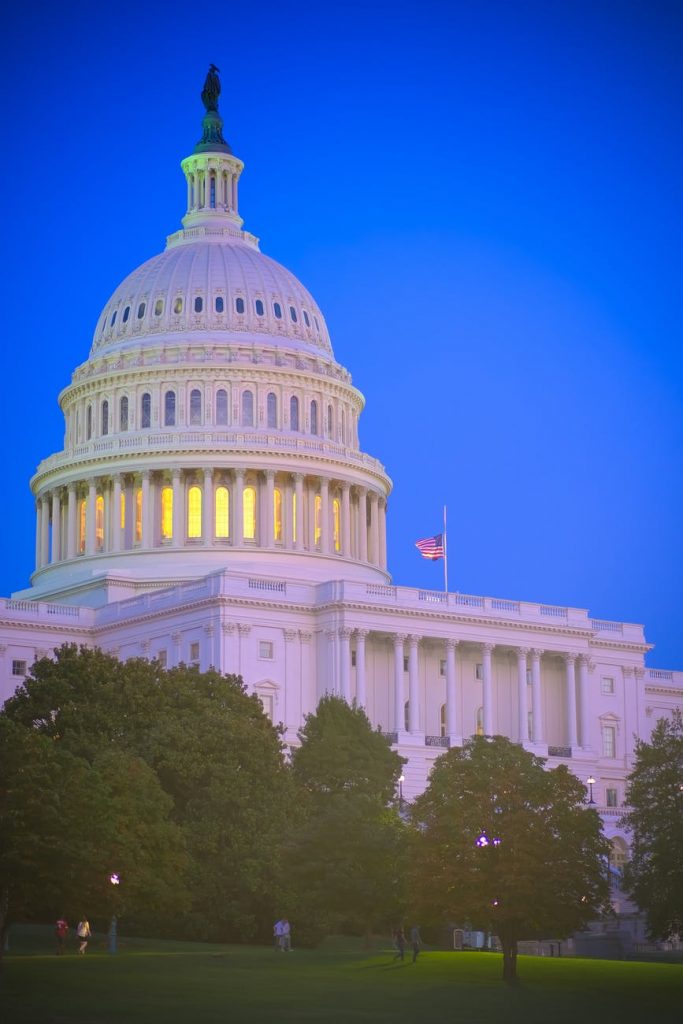This is a free essay sample available for all students. If you are looking where to buy essays on the topic “Should Congress Have Term Limits”, browse our private essay samples.
As we continue to observe and assess the performance of our elected officials, we learn to distinguish the good from the bad. As such, when election time comes around again, there is a question of whether or not some of them should be re-elected.
The President and the Senate have term limits. Should Congress also have a limited number of terms? The writer of this sample essay takes a look at the political landscape and expresses her stand on constitutional power.
Need help with your essay assignment? Allow us to connect you with one of our expert writers at an affordable rate. For other sample essays, you may check out the rest of our website.
Why Should Congress Have Congressional Term Limits?
When we elect people to a position, there is an expectation that they will maximize their time in that role to do what is best for the citizens of the nation. However, the reality is that there are professional politicians who abuse this privilege and stay on indefinitely because they want to stay in power.

In the United States, only the President and the Senate have term limits. There is currently much discussion about imposing term limits at the Congressional level. As of now, Congressmen can stay in power for as long as they are re-elected. Should this be the case, however, in the long run? Should we let Congressional government officials indefinitely remain in their roles unless they lose representation?
I firmly believe in not instituting term limits for Congress. I believe that state and local officials need to have the option to extend their stay so that they can maximize their agendas.
Below are some of the reasons why I strongly suggest that we don’t impose limits on Congressional terms immediately.
Not imposing terms limits allows freshman members to implement their new ideas with urgency
As new members become elected officials, they have a fresh chance to serve their constituents and interest groups by giving new ideas a chance to truly flourish. Change takes a long time to implement at the local and national levels. If their terms were to end in a few years’ time and they get barred from reelection, most of their efforts would not come to fruition. New leadership, if disinterested in continuity, would simply dismantle their current programs and implement their own. This would then be a vicious cycle of new starts that never culminate in long-term impact.
Term limitation defeats the purpose of representative democracy
If we adopted term limits in Congress, then we would essentially take away voting power. Voters want to have options when they choose the right person to represent them in Congress. When we make the Constitutional Amendment limit the time members of Congress get to serve, voters will constantly have a limited range of people to choose from during the election process. If you think about it, the Tenth Amendment encourages states to pursue their own laws and political reform so long as it doesn’t clash with the agenda of the federal government.
Term limits would affect the policymaking capacity of Congress
While one of the main arguments for term limitation is to allow fresh blood to enter Congress with their new perspectives, the other side of that argument would focus on their inexperience. If none of the same people make it to reelection, then Congress would be filled with new members who will have a learning curve throughout their term. Policymaking is a discipline and an art that is learned over time and experience, and if most Congressional members are greenhorns, a lower number of policies would be crafted.
The legislative process, or developing state legislatures, can take a very long time. Even the most experienced Congress members or state legislators have so many revisions to do in their proposals. At the same time, when you think about it, inexperienced state senators and congressional delegations would still have to defer to those who have more clout and experience.
Implementing term limits in the legislative branch would hinder the development of policy expertise
If state representatives knew that their time was limited, they generally feel less pressure to develop any sort of expertise in specific types of political reform because they won’t really have the time to pursue it. Those against term limits argue that, in a sense, this decreases motivation to learn and perform well during the term. Instead of pursuing deeper knowledge and expertise, the more convenient way out would just be to turn to special interests to fill that void.
Also, if there were generally less seasoned legislators in the Senate and the House of Representatives, the tendency would simply be to defer to the agencies in the Executive Branch because they have more tenure and executive power to enact things.
Competent and excellent lawmakers would not be able to stay on
There are still very able and reliable government officials in Congress today, and if they were to be placed under the law of limits through a qualifications clause, they would automatically be barred from re-election. This would be a shame, especially if they are honest people whose programs and laws are doing very well. There are plenty of legislations that require continuity in order to have a long-term impact.
Career politicians are some of the most hardworking people you will ever know, as they have made it their lives’ mission to craft legislative proposals that will make a difference in the lives of their constituents. If they were prevented from extending another term, many of those proposals in progress would cease to see the light of day.
The other branches of government would be affected by a whole new dynamic
Changes in terms for members of Congress won’t just affect Congress itself. The Executive sector is likewise going to experience the repercussions of term limits because a lot of their agencies may have to bear the weight of the inexperience of the Legislative Branch. Congress works so that most of the laws and policies are drafted in-house, working in sync with other sectors of the government. Limited exposure to Congress results in shallow performance and no expertise, which will eventually defeat the purpose of crafting laws that will make a difference in the lives of people.
Conclusion
I truly believe, that at the end of the day, continuity has to be our core value when electing government officials. Of course, this doesn’t discount the importance of voting in fresh new members of Congress whenever possible. But between voting for an experienced policymaker versus an inexperienced one, I believe that the more seasoned counterpart can be a powerful political force for good, with the right motivations and agenda for service. Popular votes will, of course, go to these people for specific reasons.

We cannot discount that there are many bad politicians who are simply after clout and prestige, with no plan in place. There will always be kinks in the political process, with people only put in place to benefit a specific interest group. But I would like to believe that there are still honest and competent state representatives around from every political party. Congress’s power will be more effective if there were a mix of new and seasoned career politicians representing the states. We want to uphold the values of representative democracy, and I think having an all-or-nothing mindset would not be helpful.
Ultimately, we want to leave to the voters the decision of who to tick off in their ballot box. Never mind that there may be many opponents for Congress. The important thing is that the voter will have all the options before him or her.